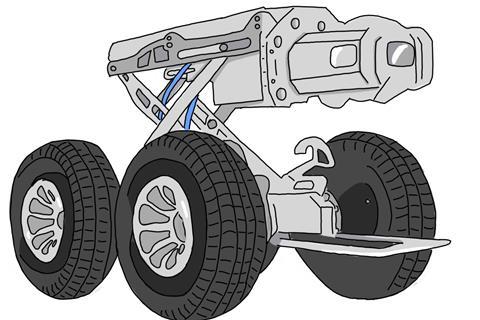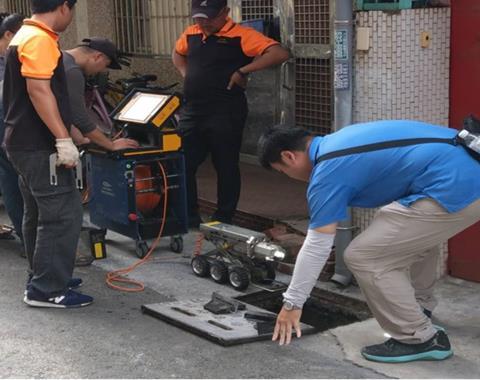Unmanned ground vehicles can be used to identify and eliminate the breeding sources of mosquitos that carry dengue fever in urban areas, according to a new study.

The report by by Wei-Liang Liu of the Taiwan National Mosquito-Borne Diseases Control Research Center and colleagues is published in PLOS Neglected Tropical Diseases.
Dengue fever is an infectious disease caused by the dengue virus and spread by several mosquito species in the genus Aedes, which also spread chikungunya, yellow fever and zika. Through the process of urbanization, sewers have become easy breeding grounds for Aedes mosquitos and most current mosquito monitoring programs struggle to monitor and analyze the density of mosquitos in these hidden areas.
Crawling robot
In the new control effort, researchers combined a crawling robot, wire-controlled cable car and real-time monitoring system into an unmanned ground vehicle system (UGV) that can take high-resolution, real-time images of areas within sewers.
From May to August 2018, the system was deployed in five administrative discticts in Kaohsiung city, Taiwan, with covered roadside sewer ditches suspected to be hotspots for mosquitoes. Mosquito gravitraps were placed above the sewers to monitor effects of the UGV intervention on adult mosquitoes in the area.

In 20.7% of inspected sewers, the system found traces of Aedes mosquitos in stages from larvae to adult. In positive sewers, additional prevention control measures were carried out, using either insecticides or high-temperature water jets. Immediately after these interventions, the gravitrap index (GI)— a measure of the adult mosquito density nearby— dropped significantly from 0.62 to 0.19.
“The widespread use of UGVs can potentially eliminate some of the breeding sources of vector mosquitoes, thereby reducing the annual prevalence of dengue fever in Kaohsiung city,” the authors say.







No comments yet